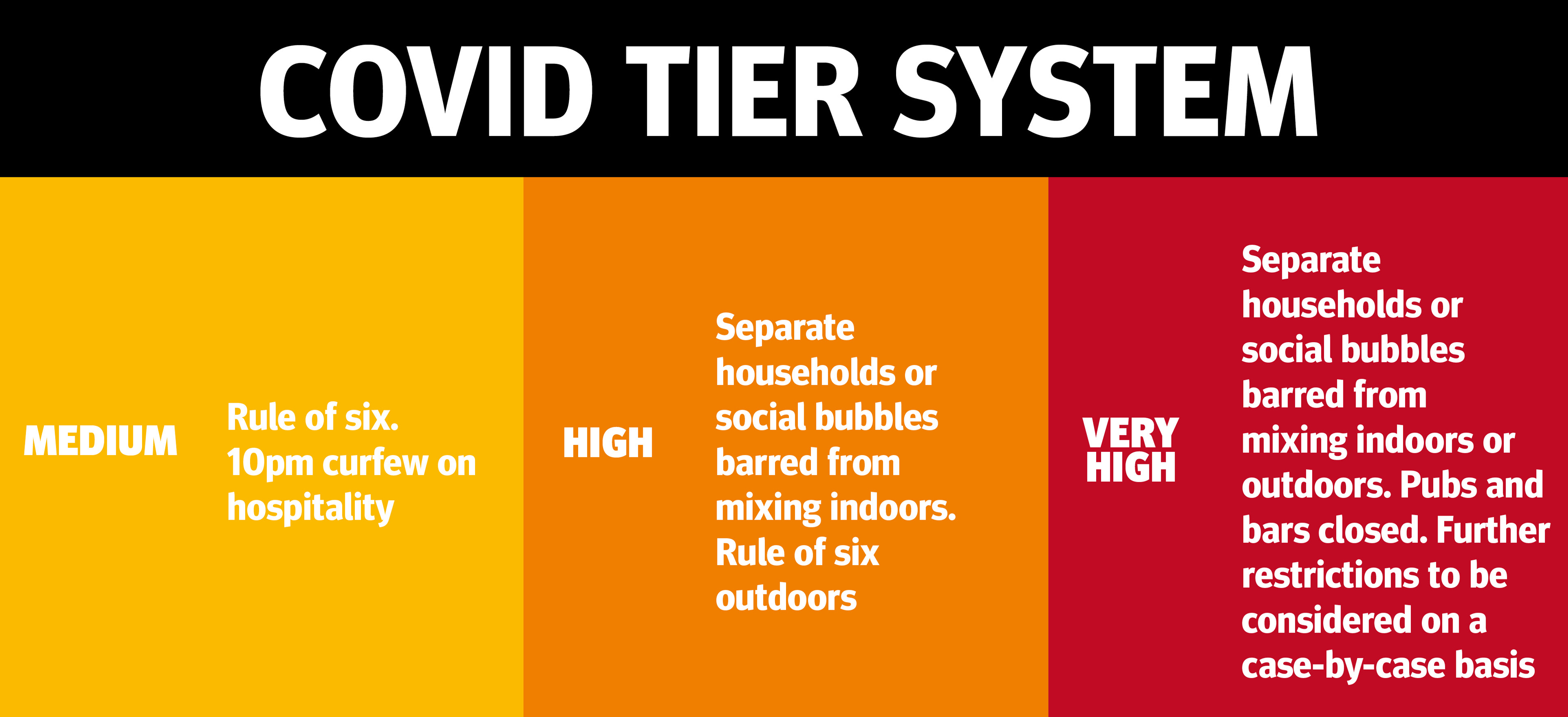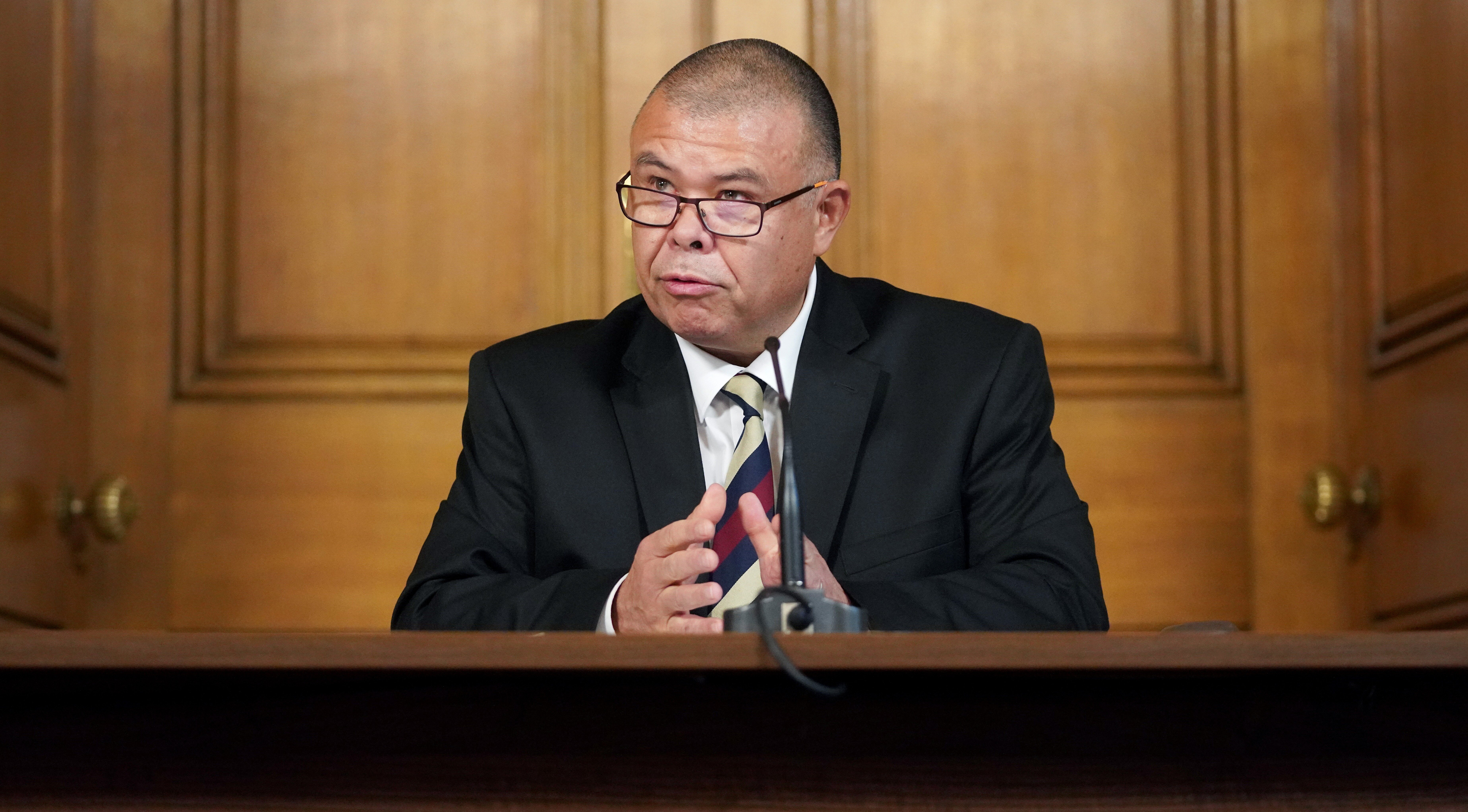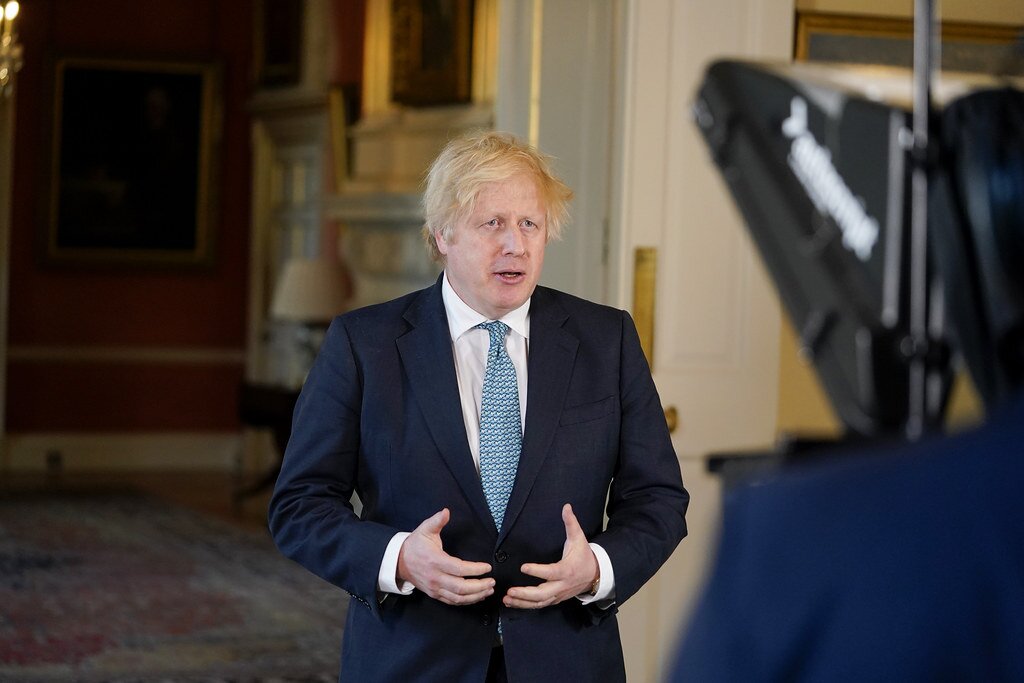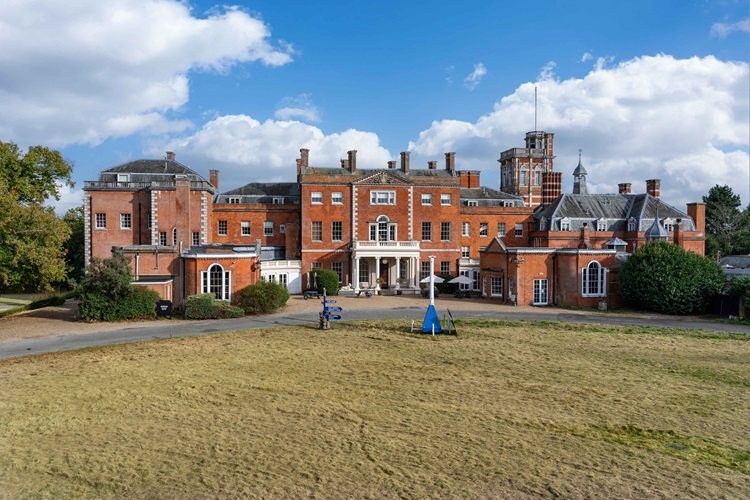Prime minister unveils three-tier system as Liverpool placed in highest alert level
The prime minister has unveiled a three-tier local alert system and placed Liverpool under its highest level, ordering pubs and bars to close from Wednesday.
The Liverpool city region becomes the first to be placed in the ‘very high’ alert level, which automatically bans social mixing between different households or support bubbles in indoor and outdoor settings, including private gardens, as well as requiring pubs and bars to close. The only pubs that will be allowed to remain open are those that operate as if they were a restaurant and serve "substantial meals". They will only be able to serve alcohol as part of such a meal.
Additional restrictions can be added in agreement with local authorities. In Liverpool these will also see betting shops, gyms and leisure centres close.
Those areas already under restrictions, including Greater Manchester, will placed under the ‘high’ alert level, which bans households or support bubbles mixing in indoor environments. Nottinghamshire, East and West Cheshire and the High Peak have also been newly classified under the ‘high’ alert.
The rest of England will be placed on ‘medium’ alert, under the ‘rule of six’ and with the 10pm curfew on hospitality businesses remaining in place.

Unveiling the measures the prime minister said “we don’t want to go back to another lockdown”, but “we can’t let the virus rip”. He said he took “no pleasure in imposing restrictions” on hospitality businesses and insisted he recognised many had gone to great lengths to reopen safely.
In areas where businesses are forced to close, the government will cover two-thirds of employee wages, as revealed by chancellor Rishi Sunak last week. Additionally businesses will be provided with a cash grant of up to £3,000 a month.
A further £1b will be made available for local authorities to distribute. Scotland's first minister Nicola Sturgeon has already announced the country will have its own tiering system.
Reaction: Liverpool operators fear wipeout in face of partial lockdown >>
Simon Vanderbelt, co-owner of the Little Taproom on Aigburth Road, Liverpool, which will be required to close from Wednesday, told The Caterer: “We only opened on 13 March and it’s been a bit of a rollercoaster. We survived through a generous landlord and doing takeout and delivery services of craft beer and real ale.
"We did OK in initial lockdown, but then everyone was at home and the weather was good, so parks were busy with takeout beer. That isn’t going to be the case this time. We will still offer a takeout service but we’re not even going to break even if we do that.
“The support offered in terms of two-thirds of pay and a small grant doesn’t really cover rent. It’s a case of uncertainty. We’ll do what we can initially but it’s a growing dread of how long [lockdown] lasts for. It simply won’t be sustainable for the whole winter. If that happens we’ll have some very hard decisions to make. Being less than a year old it is particularly heartbreaking.”
UKHospitality chief executive Kate Nicholls added: “The impact of all of these restrictions is huge and we are quickly reaching the point of no return for many businesses.
“For those businesses in tier three [very high] areas, forced to close their doors again, things look bleak, but the support announced last week for closed businesses will hopefully give them the breathing room they need to survive another lockdown.
“There is currently a concerning lack of support on offer for hospitality businesses in tier two [high] , and to a lesser extent tier one [medium], despite their facing restrictions that is seeing trade down by between 40% to 60%. They will have the worst of both worlds, operating under significant restrictions without the financial support on offer to tier three businesses. Without enhanced grant support and enhanced government contributions to the Job Support Scheme, many are going to fall by the wayside.
“It is time for the government, at the very least, to rethink the mandatory 10pm curfew in those areas where Covid rates are low."
Mayor of Greater Manchester Andy Burnham had earlier welcomed the decision not to put the area into the 'very high' tier, which would force the closure of pubs and bars. He said: “We had no evidence that hospitality was the primary cause of spread in our city region, however it’s important to say any restrictions will choke off trade [for] our pubs, our restaurants – even our shops. What we say to government today is any restrictions must come with a full economic support package.”

Earlier today deputy chief medical officer professor Jonathan Van-Tam said: “[The] Covid situation is building nationally, particularly in the north east and north west… [there is a] massive collective responsibility on every citizen to play their part in defeating this virus and getting it back under control.”
Asked if there was evidence that hospitality was responsible for the spread of cases Van-Tam said the virus spreads most easily in closed, crowded spaces where people have close contact, remain for a significant time and gather in volume.
Photo: Flickr – number10gov















